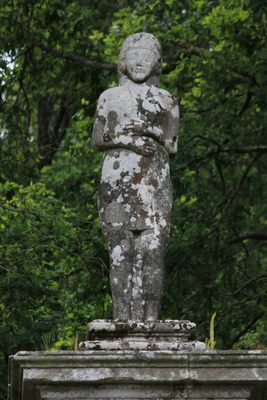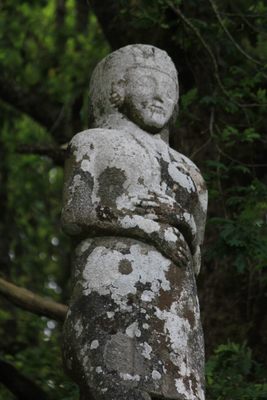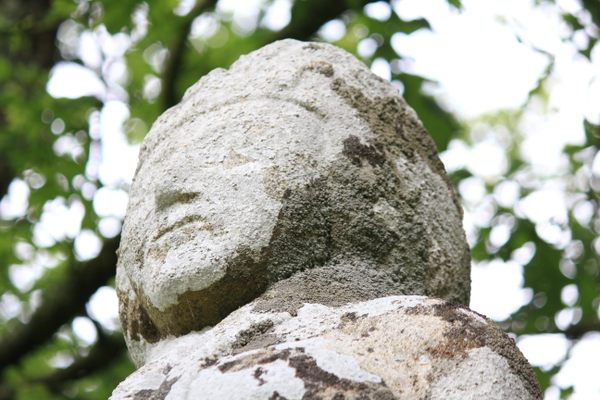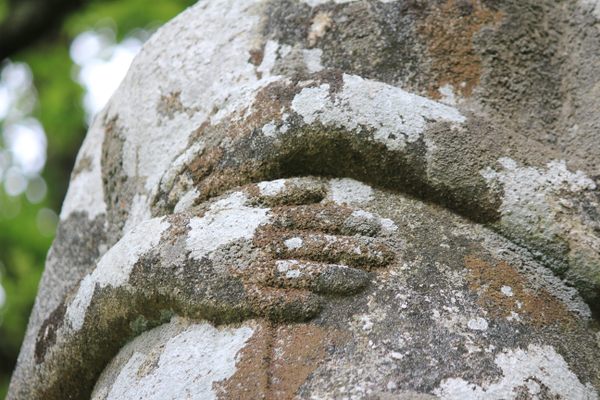About
The Vénus de Quinipily is an enigma. Carved out of granite, this ancient statue of a naked goddess stands tall in front of a dilapidated fountain at 2.2 meters (7.2 feet) in height. Although believed to have been created around 49 B.C. and erected at the Roman camp, its origins are yet to be known.
Popular theories have it that it may be an effigy of the Anatolian mother goddess Cybele, or the major Egyptian goddess Isis, or some sort of Celtic deity. But one thing they agree on is that it’s unlikely to be Vénus in spite of the name. In the seventeenth century, it was worshipped by local pregnant women who called it Groah Hoart, or the Old Crone.
As the worship grew, many superstitions came to be known, such as the idol’s powers to cure diseases and infertility, and some sources refer to erotic rituals performed around the idol. Taking great offense to this, the Bishop of Vannes ordered the local lord Claude de Lannion to throw it into the river in 1661. Right after this incident, it started raining so much that a flood laid waste to that year’s harvest. Fearing this to be a punishment for their blasphemy, the villagers salvaged it from the river and put it back in place.
The Bishop heard of this and again ordered the statue to be broken into pieces, but the villagers couldn’t bring themselves to do so. Instead, they cut a breast and an arm off the statue and threw it into the river once again, where it lay for the following 25 years.
In 1695, the Bishop requested Pierre de Lannion, son of the aforementioned lord, to destroy the pagan idol. But Lannion, who was an avid antiquarian, ignored his orders and decided to bring it to his own château in Quinipily, 10 miles away from its original place in Castennec, to restore it.
The Vénus stands on the site of Lannion’s garden to this day, but some rumors doubt its legitimacy. According to the skeptics, the statue was damaged during Lannion’s restoration work, so he replaced it with a new one in secret.
Related Tags
Community Contributors
Added By
Published
April 18, 2022




























